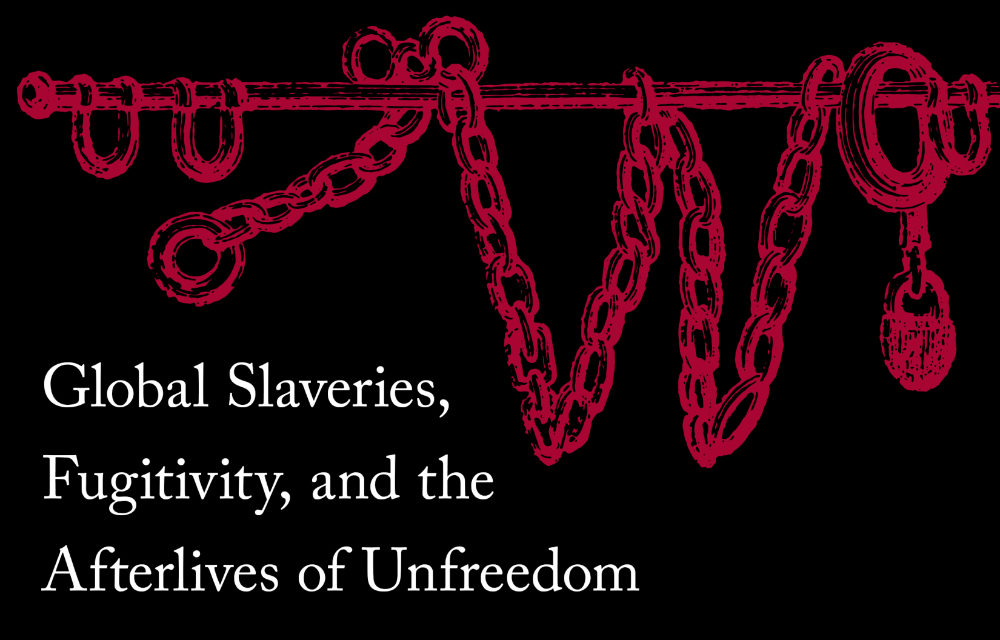Global Slaveries, Fugitivity, and the Afterlives of Unfreedom

This Sawyer Seminar, convened by Professors Pedro Machado (History) and Olimpia Rosenthal (Spanish and Portuguese), explores and emphasizes the importance of studying the global interconnectedness of histories of slavery in the Atlantic, Indian, and Pacific worlds, foregrounding how their evolutions shaped processes of racialization and the advancement of capitalism. It also draws attention to the various forms of fugitivity that challenged systems of slavery by acts of withdrawal and contestation. Temporally, the Seminar is grounded in relation to three key moments and processes. Firstly, Europe’s colonization of the Americas during the fifteenth and sixteenth centuries and the influence this had on the development of the Atlantic and Transpacific slave trades and the emergence of capitalism. Secondly, the different histories of abolitionism ranging from the sixteenth to the nineteenth century and the forms of unfree and coerced labor practices that emerged subsequently. Finally, contemporary memorializations of slavery, unfreedom, and fugitivity, particularly in the aftermath of the Black Lives Matter movement and in light of various forms of indigenous activism in the Americas and around the world.
Understanding slavery, unfree labor practices, and fugitivity as complex, interconnected global processes with afterlives that continue to shape discourses of representation today requires a ‘connected comparative’ and interdisciplinary methodology focused on local particularities and specificities. It requires, equally, engaging broader concerns about defining conceptual language and analytical frameworks that bring Atlantic, Indian, and Pacific slaveries into relation with one another. The Seminar highlights various forms of fugitivity that developed across different geographies, and considers different forms of coerced labor practices such as bondage, indenture, and kangani in places such as India and South Africa. We seek, moreover, to illuminate the interconnections between regions through thematically and spatially grounded macro- and micro-geographical analyses. These analyses foreground the global linkages of marketplaces and transit zones, the centrality of port cities, and the histories of commodity production and exchange – particularly involving sugar, tea, cotton, tobacco, and rice – that have indelibly shaped the modern world and are deeply enmeshed in the relational histories of slavery and unfree labor practices.
The central questions addressed by the Seminar are organized around three main lines of inquiry. We consider, in the first instance, current developments in the historiography of slavery and unfreedom across geographies and ask how comparative and relational studies can help enrich, bring nuance, and expand existing, and in some cases longstanding, explanatory narratives. Our second line of enquiry is informed by a series of conceptual concerns pertaining to contemporary theorizations of racialization as a process of socio-racial classification and hierarchization with deep roots in colonial regimes of governance of black and brown bodies, particularly in relation to gender, slavery, and labor. A third set of issues that helps anchor the dialogues fostered by the Seminar stems from the growing awareness of the limits that fragmentary archival sources have for tracing the contestations and afterlives of slavery and unfreedom.
Graphic Design by David Orr.
 The College of Arts
The College of Arts